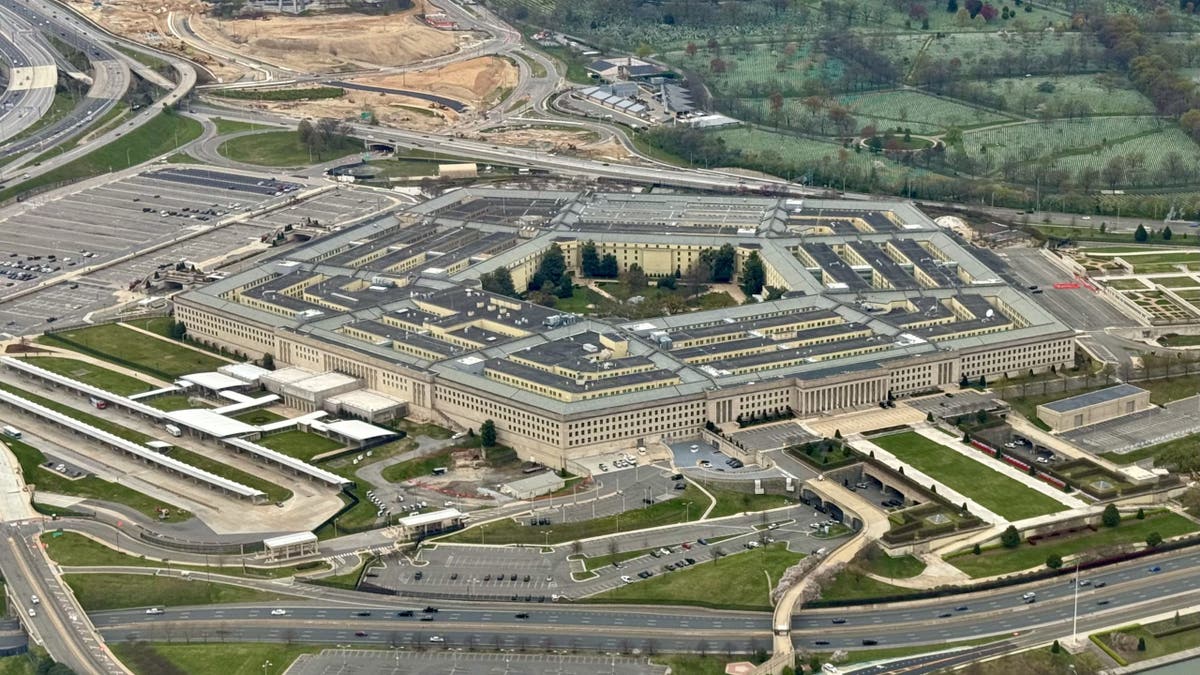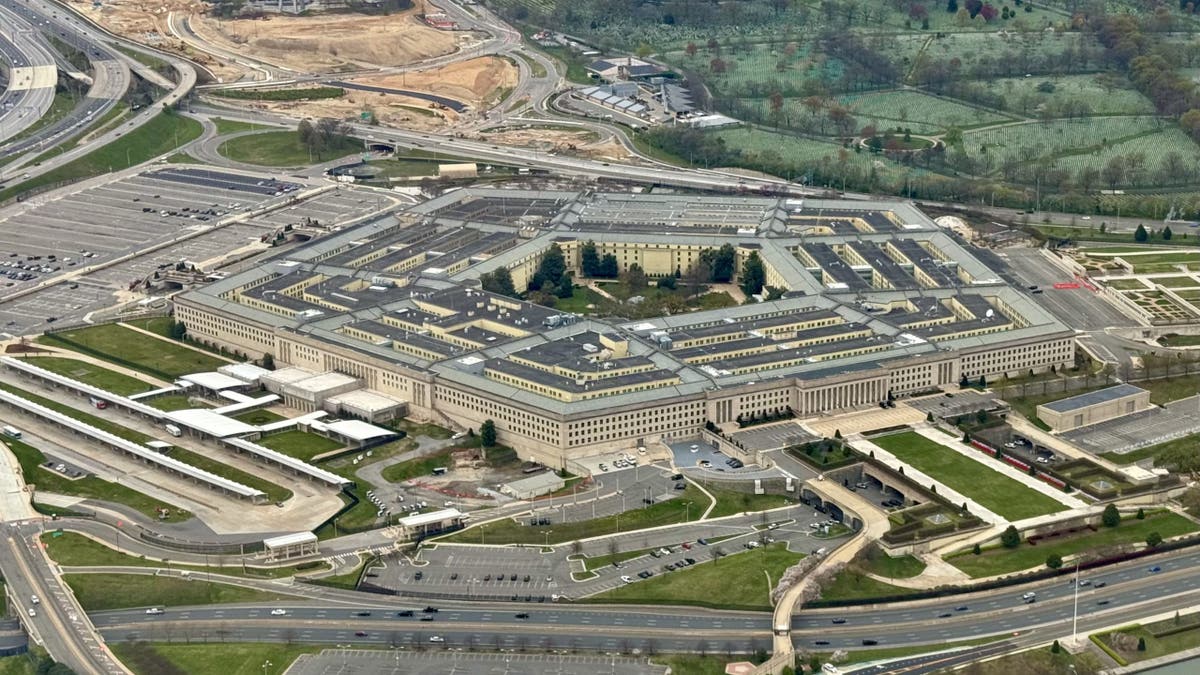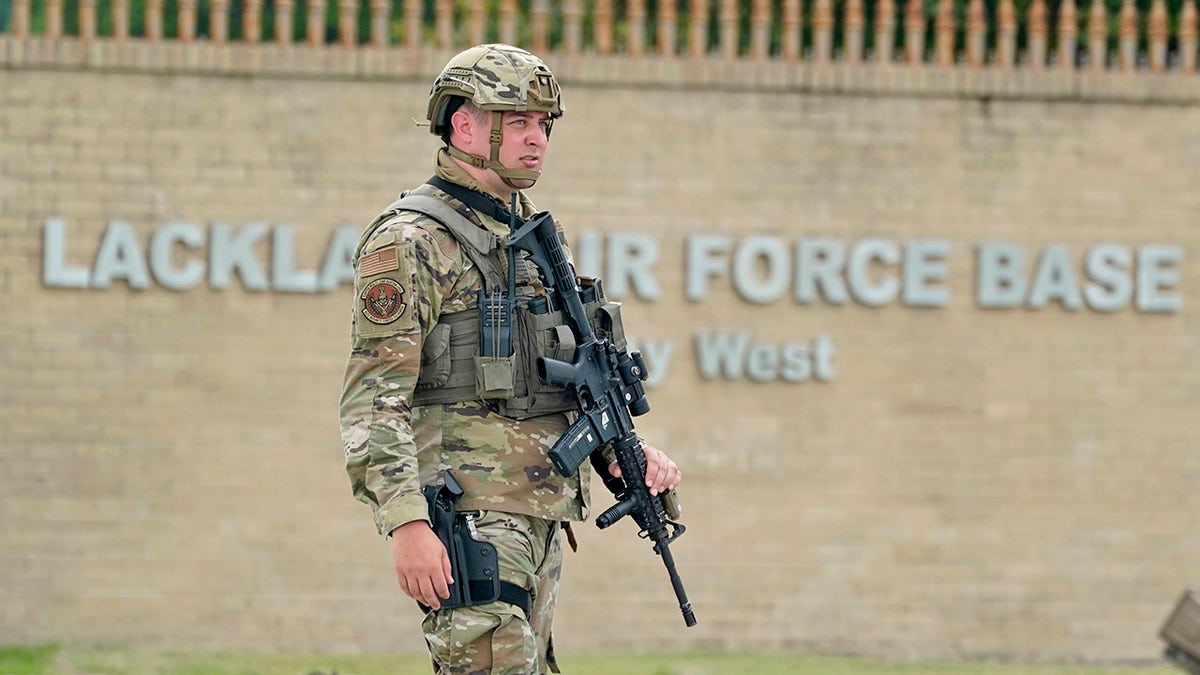
The House is set to vote Wednesday on its must-pass yearly defense bill that would give junior enlisted troops a significant pay bump and work to eliminate DEI programs at the Pentagon.
The 1,800-page bill known as the National Defense Authorization Act (NDAA), details how $895.2 billion allocated toward defense and national security will be spent. It will be voted on more than two months after the start of the fiscal year.
The $895.2 billion represents a 1% increase over last year’s budget, a smaller number than some defense hawks would have liked.
A significant portion of the legislation focused on quality-of-life improvements for service members amid record recruitment issues, a focus of much bipartisan discussion over the last year. That includes a 14.5% pay increase for junior enlisted troops and increasing access to child care for service members while also providing job support to military spouses.

The House is set to vote Wednesday on its must-pass yearly defense bill. (DANIEL SLIM/AFP via Getty Images/File)
The measure authorizes a 4.5% across-the-board pay raise for all service members starting Jan. 1.
The NDAA typically enjoys wide bipartisan support, but this year’s focus on eliminating “woke” policies could be hard for Democrats to stomach.
PENTAGON ANNOUNCES NEW COUNTER-DRONE STRATEGY AS UNMANNED ATTACKS ON US INTERESTS SKYROCKET
The policy proposal to prohibit Tricare, the military’s health care provider, from covering transgender services for the minor dependents of service members has raised concerns, prompting the leading Democrat on the House Armed Services Committee, Rep. Adam Smith of Washington, to reconsider his support for the bill.
“Blanketly denying health care to people who clearly need it, just because of a biased notion against transgender people, is wrong,” he said in a statement. “This provision injected a level of partisanship not traditionally seen in defense bills.”
The goal of that provision is to prevent any “medical interventions that could result in sterilization” of minors.

President Biden speaks to members of the 82nd Airborne Division. (AP Photo/Evan Vucci/File)
Other provisions, like a blanket ban on funding for gender transition surgeries for adults, did not make their way into the bill, neither did a ban on requiring masks to prevent the spread of diseases.
The bill also supports deploying the National Guard to the southern border to help with illegal immigrant apprehensions and drug flow.
Another provision opens the door to allowing airmen and Space Force personnel to grow facial hair; it directs the secretary of the Air Force to brief lawmakers on “the feasibility and advisability” of establishing a pilot program to test out allowing beards.
US SCRAMBLES AS DRONES SHAPE THE LANDSCAPE OF WAR: ‘THE FUTURE IS HERE’
Democrats are also upset the bill did not include a provision expanding access to IVF for service members. Currently, military health care only covers IVF for troops whose infertility is linked to service-related illness or injury.
But the bill did not include an amendment to walk back a provision allowing the Pentagon to reimburse service members who have to travel out of state to get an abortion.

Enlisted service members will see a 14.5% pay bump in the 2025 NDAA. (File)
The bill extends a hiring freeze on DEI-related roles and stops all such recruitment until “an investigation of the Pentagon’s DEI programs” can be completed.
It also bans the Defense Department from contracting with advertising companies “that blacklist conservative news sources,” according to an internal GOP memo.
The memo said the NDAA also guts funding for the Biden administration’s “Countering Extremist Activity Working Group” dedicated to rooting out extremism in the military’s ranks. The annual defense policy bill also does not authorize “any climate change programs” and prohibits the Pentagon from issuing climate impact-based guidance on weapons systems.
House Speaker Mike Johnson, R-La., touted $31 billion in savings in the legislation that would come from cutting “inefficient programs, obsolete weapons, and bloated Pentagon bureaucracy.”
CLICK HERE TO GET THE FOX NEWS APP
The compromise NDAA bill, negotiated between Republican and Democrat leadership, sets policy for the nation’s largest government agency, but a separate defense spending bill must be passed to allocate funds for such programs.








